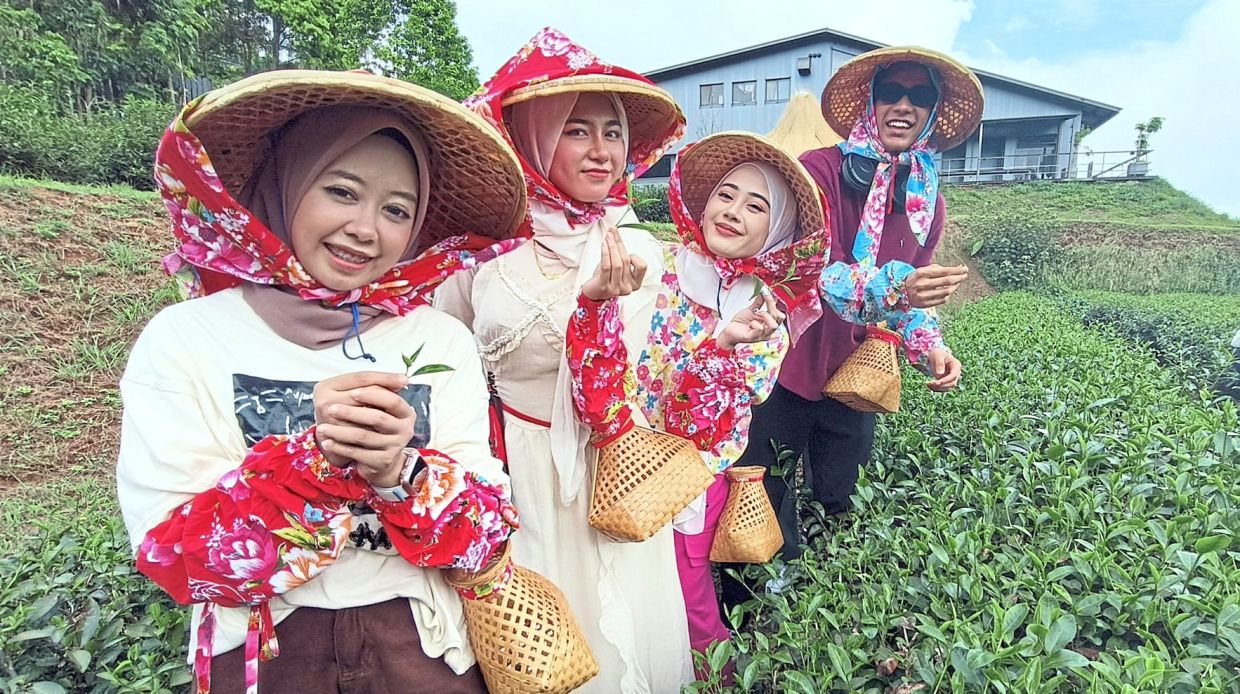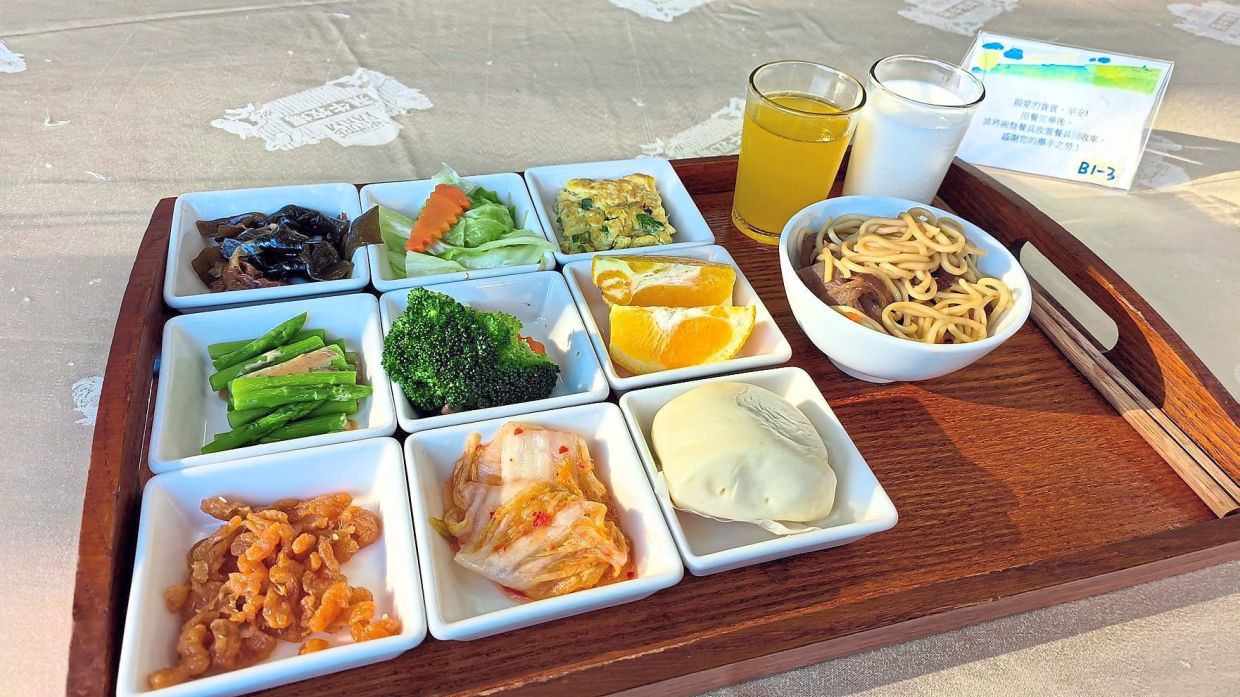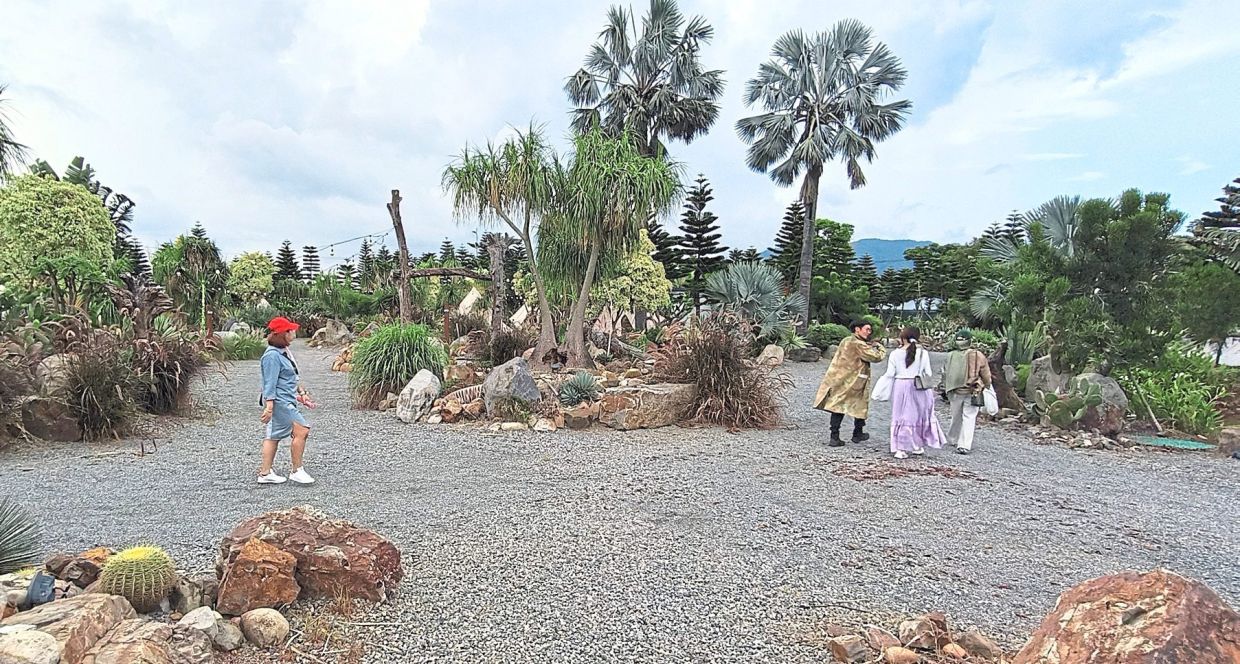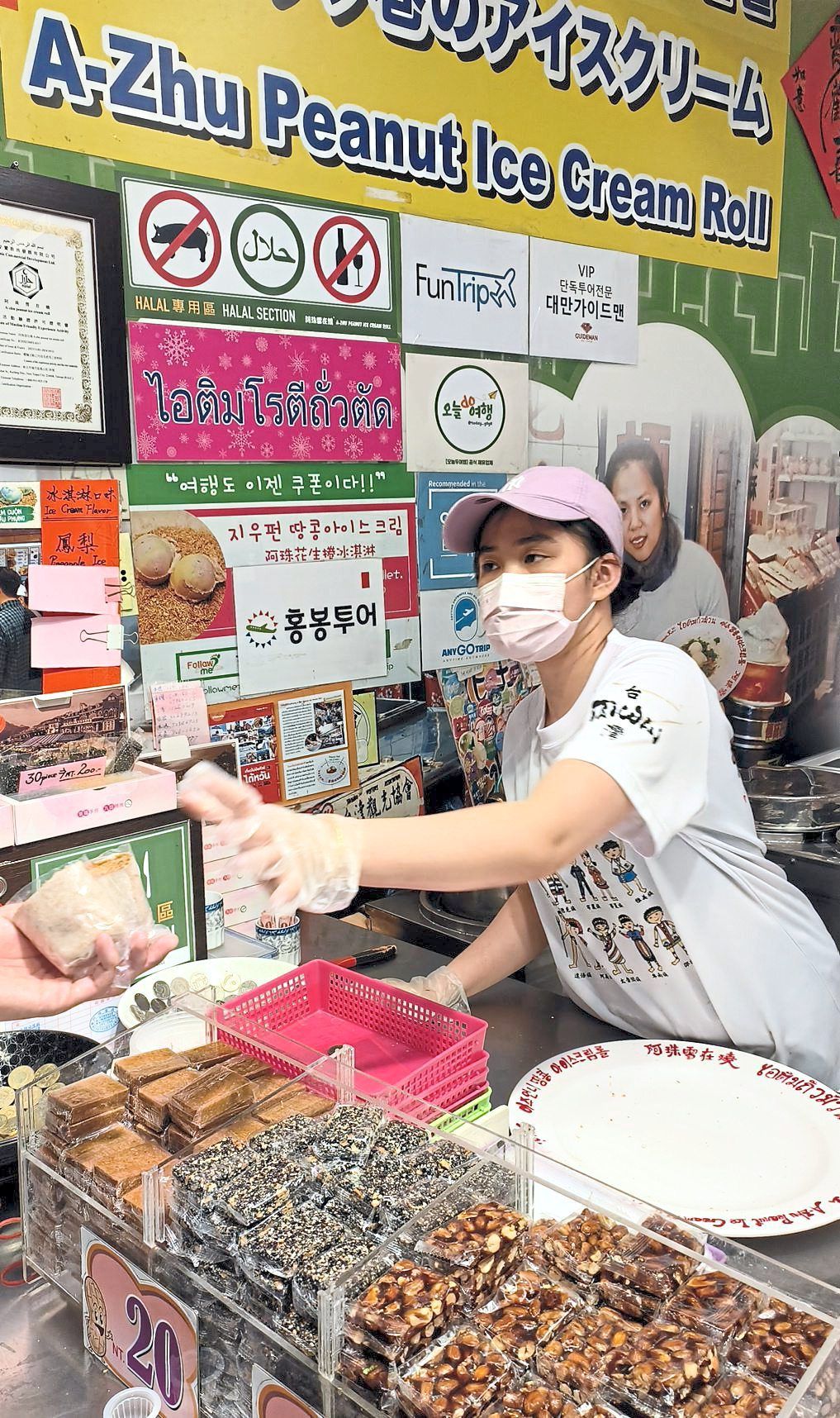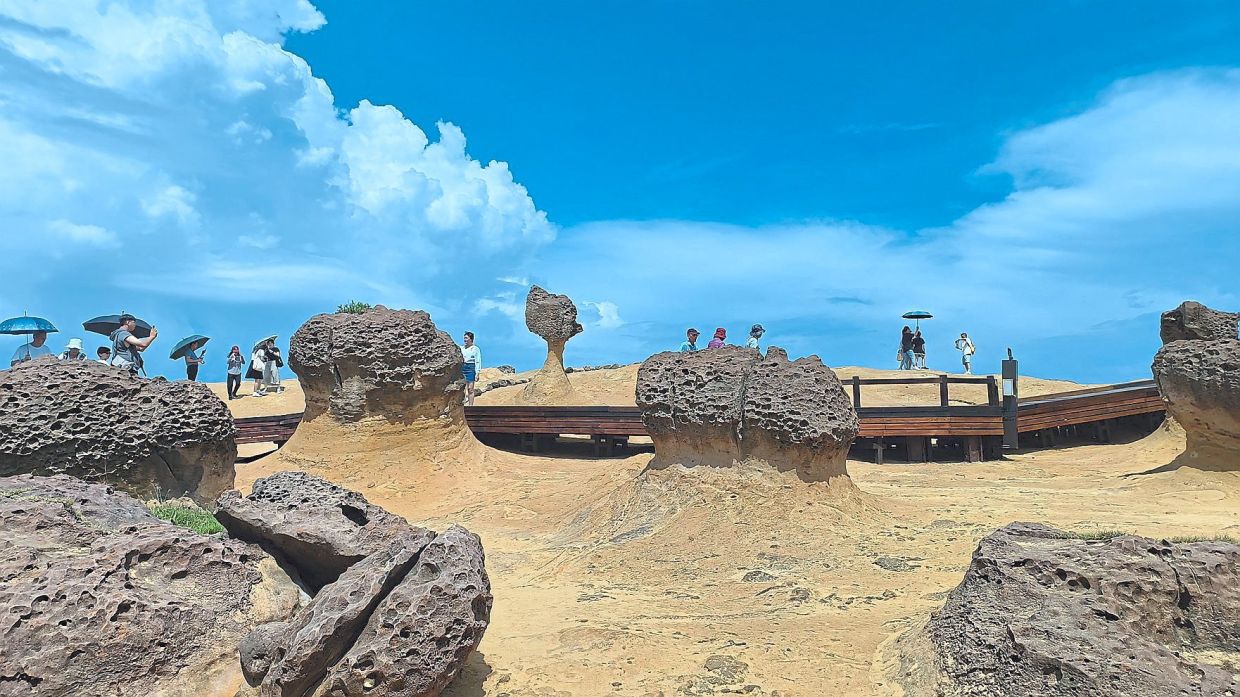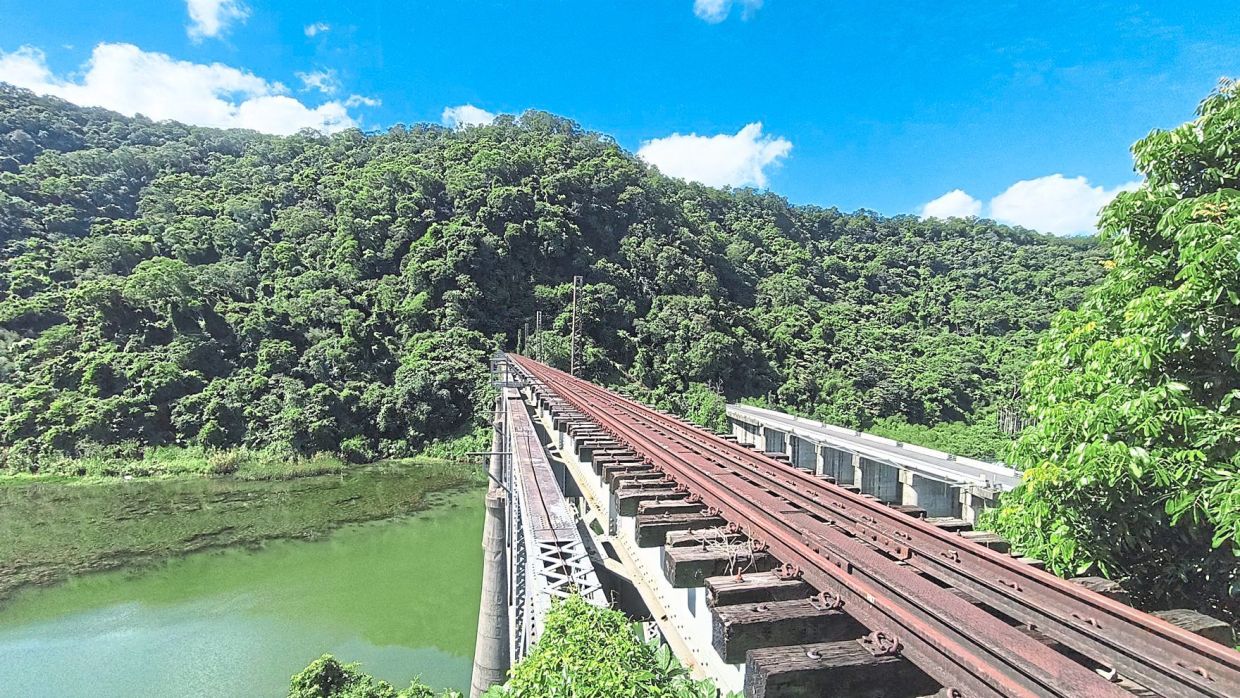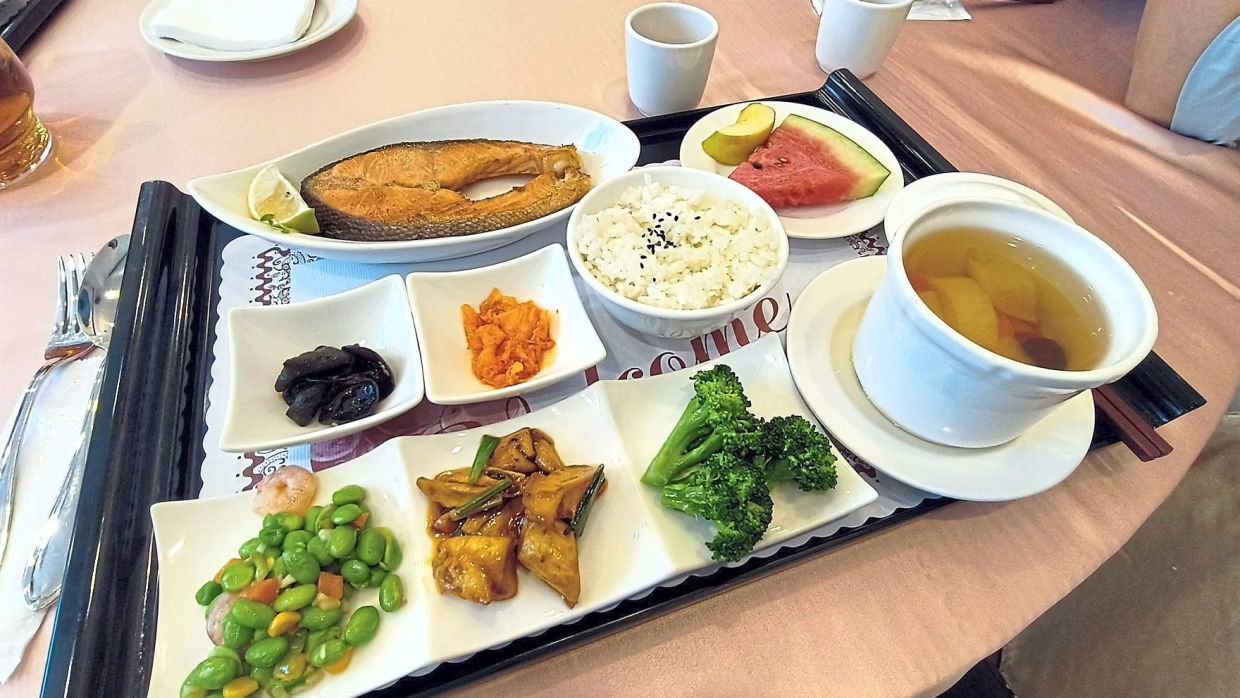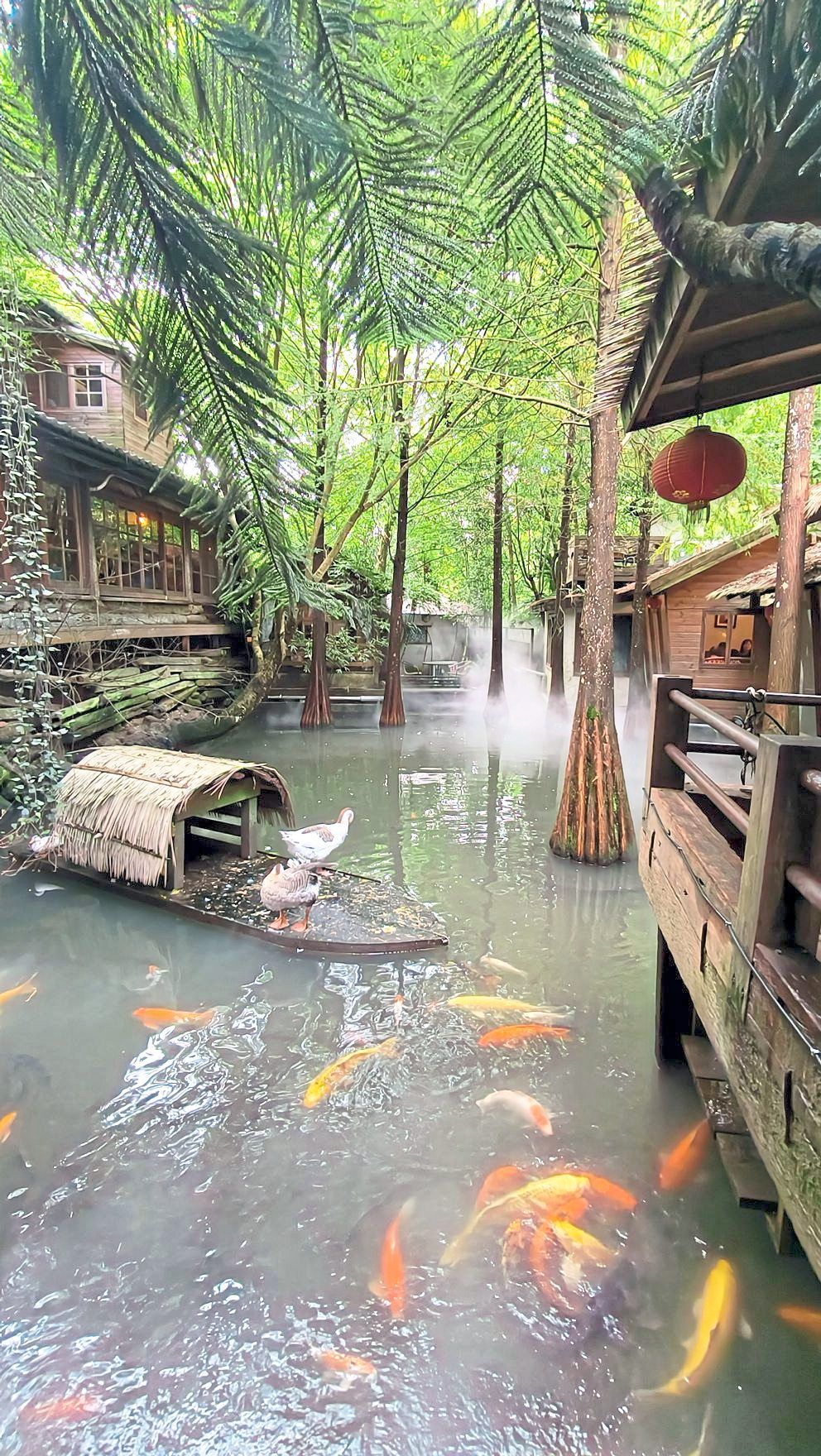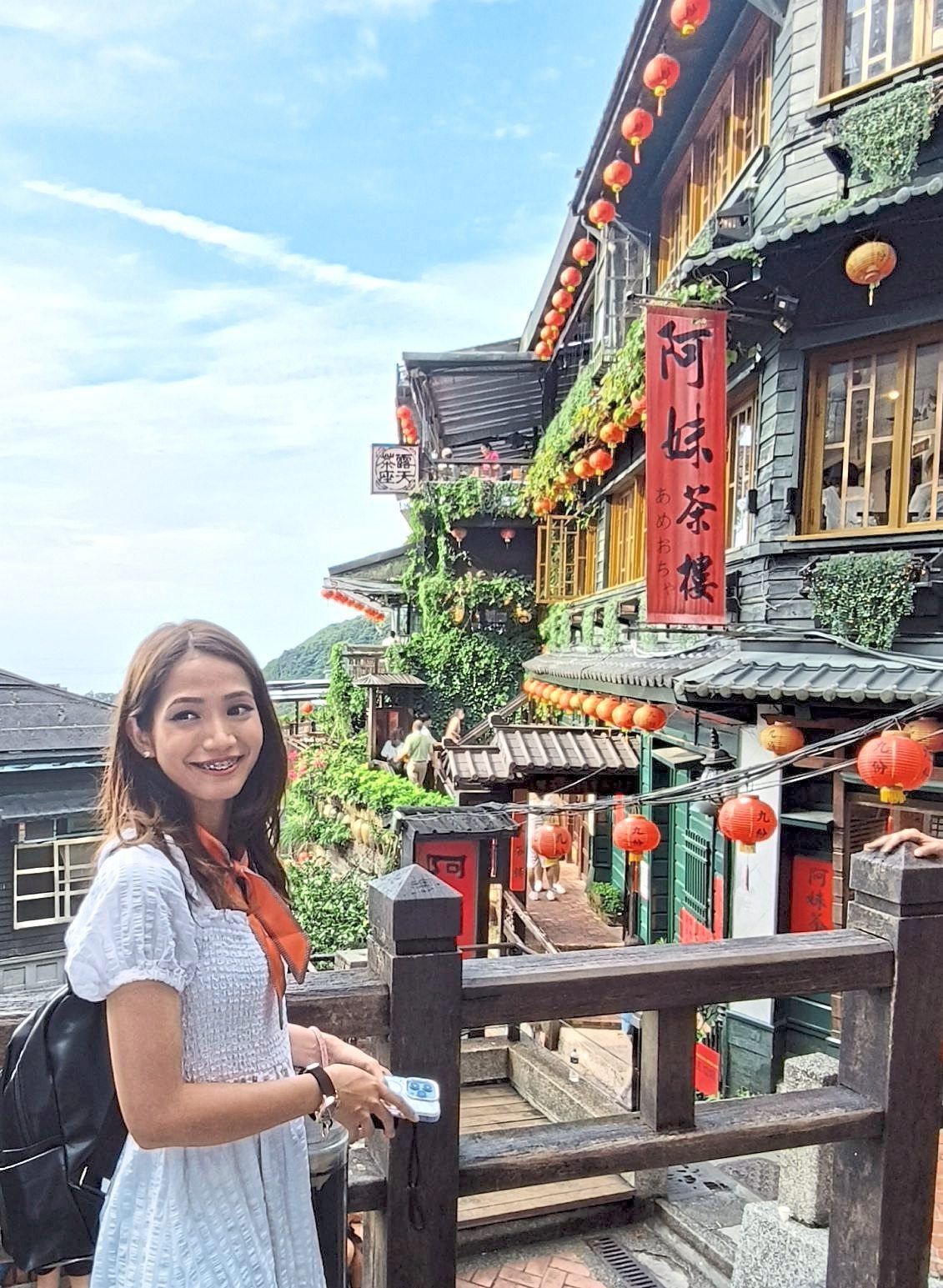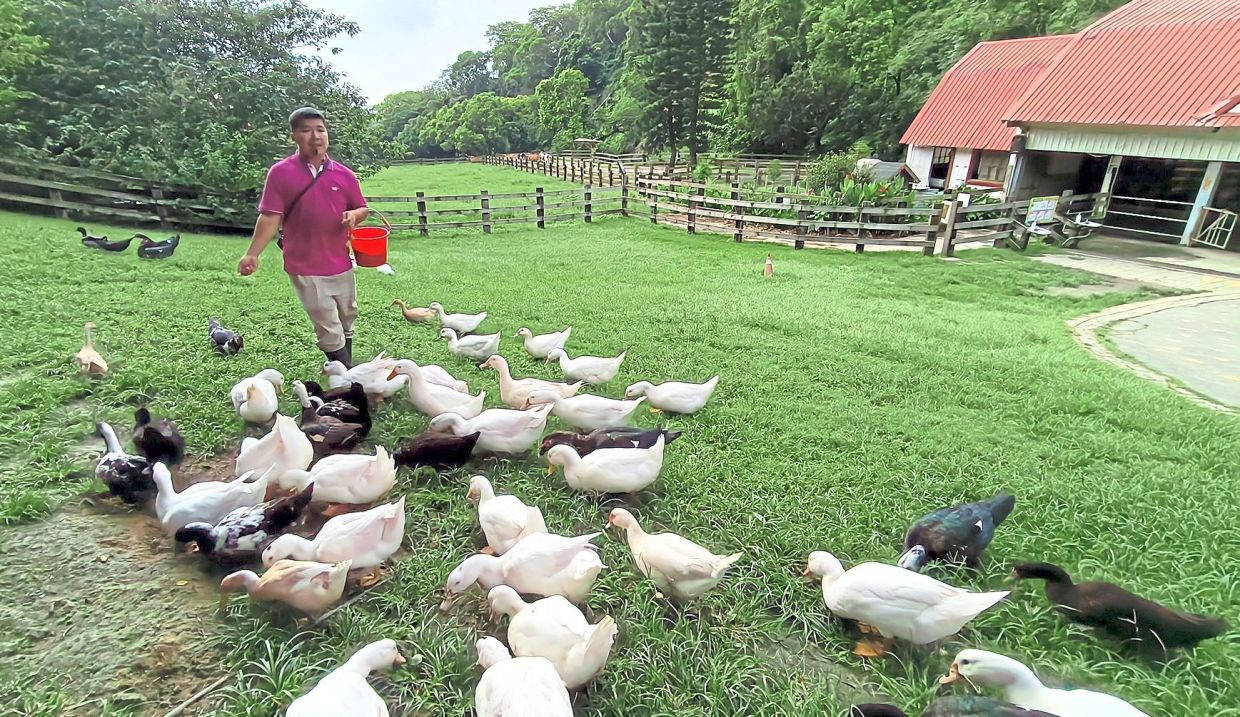Malaysian content creators (from left) Khairina Nur Humaira Noralyadi, Nur Iylia Maisarah Mohd Azmi, Aintasnim Marsya Ainol Zamani and Muhammad Izzrin Irfan Mohd Ismail at the Tongluo Tea Factory. — Photos: ALLISON LAI/The Star
Taiwan may be small, but this island powerhouse packs a punch when it comes to captivating cultural experiences for Muslim travellers.
From the neon-lit bustling streets of Taipei to the serene natural wonders of Miaoli, Taiwan blends ancient traditions with modern flair, creating an enthralling and fascinating journey that leaves travellers spellbound.
Having been to the island multiple times for leisure and work, I have seen how Taiwan has developed its tourism offerings to attract many global travellers.
Recently, I had the pleasure of revisiting this vibrant destination, exploring the dynamic capital city of Taipei and the picturesque region of Miaoli with a group of Malaysian travellers. Our adventure gave us a chance to delve into Taiwan’s Muslim-friendly offerings, rich with colourful cultural and heritage experiences.
Throughout our six-day trip, we stayed at three hotels, all of which were comfortable and distinctly Muslim-friendly. At the Fuji Grand Hotel in Taipei, thoughtful information such as Qiblat direction and local prayer times, as well as a prayer mat, were included in each room.
Another hotel in the city, Just Sleep, offered a delightful Muslim-friendly buffet breakfast.
As for the Flying Cow Ranch in Miaoli, it not only offered fresh milk from the farm and many milk-based delicacies, but all of the food on offer was Muslim friendly, including the milky ice cream and the many snacks.
Although we were there at the end of summer, the weather remained warm, with bright blue skies each day. Of course, we weren’t just in the capital, as we also explored the scenic splendours of Yehliu Geopark in New Taipei City, renowned for its unique geological formations.
With umbrellas and sunshades, we marvelled at the “Queen’s Head” rock formation and the “Playful Princess”, a ponytail-shaped structure. Wandering through the park’s landscapes felt like an immersion in Mother Nature’s artistry.
Next, we lost ourselves in the vintage charm of Jiufen, a former gold mining town known as the “Golden Mountain City”. The narrow, teahouse-lined alleyways brimmed with hundreds of shops offering an array of items and snacks.
Among them, we were delighted to find halal and Muslim-friendly options, making it a welcoming spot for our group. Jiufen’s vibrant marketplace is an eclectic mix of sights and scents, with vendors selling everything from handcrafted souvenirs to local delicacies.
As a tea lover, I found a tempting array of teabags and loose tea leaves that truly showcased Taiwan’s renowned tea culture – Jiufen definitely did not disappoint here. My haul of exquisite teas showed the rich flavours and quality that Taiwan is famous for.
As we wandered around, the stunning mountain and sea views provided a breathtaking backdrop, making the experience even more unforgettable.
Farm life
When we headed south to the Flying Cow Ranch in Miaoli in north-central Taiwan, the hands-on farm experiences at the family-friendly farmhouse were simply exciting for city dwellers like us.
We got to witness the whimsical “release the quackens” ritual before feeding six species of ducks. We also tried our hand at milking cows and making dairy products, amid the ranch’s picturesque landscapes, offering a peaceful countryside retreat and farm life.
At the Tongluo Tea Factory, we had an insightful dive into Taiwan’s most beloved beverage with a guided tour of the organic tea plantation, learning about the natural farming techniques used to cultivate high-quality products like “Oriental Beauty”, green tea and the Mixiang black tea.
We enjoyed activities such as tea picking at the lush tea farms, searching for the perfect “one-tip, two-leaf” stems.
We also explored Zuo Ye Cottage in the tranquil hills of Sanyi township that featured a hands-on indigo dyeing workshop, showcasing traditional Taiwanese craftsmanship.
Surrounded by beautiful gardens and expansive indigo fields, we had fun dyeing our small white-coloured tote bags by tying sticks and rubber bands on the fabric to create various patterns, using natural ingredients and simple methods.
In Sanyi, we also learned about Taiwan’s railway history on the Old Mountain Line Rail Bike, which creatively combines modern electric bike technology with a century-old logging railway.
Another highlight was the remains of the historic Longteng Bridge, a cultural landmark damaged by a massive earthquake in 1935. The bridge’s exquisite brick arches are now visible from the Yutengping Steel Bridge.
Our senses were indulged at Flower Home, known for its vibrant flower fields, castle-style accommodations and natural essential oils. After strolling through its soothing floral displays, we joined a workshop to make bug-repellent sprays using fresh herbs and essential oils.
At the laid-back LoFi Land garden campsite, we also tried our hands at making bread before getting up close with several stick insect species.
When we got back to Taipei before the end of our trip, we admired the city’s panoramic views from the Taipei 101 Observatory, one of the world’s tallest skyscrapers and perhaps Taiwan’s most photographed landmark. Situated on the 89th floor, the observatory’s 360° view of the city is a must-visit attraction.
Visiting Taipei is never complete without checking out the vibrant Ximending shopping district, which is a blend of historical and modern experiences.
This bustling area, evolving since 1922, always surprises visitors with various attractions, be they street art, murals and people, as well as the various shops that offer both nostalgic and trendy items.
Welcoming everyone
We also visited the Taipei Grand Mosque, a key spiritual centre for the local Muslim community. Completed in 1960, the mosque is renowned for its striking architecture and serene atmosphere, highlighting Taiwan’s commitment to religious diversity and inclusion.
Our tour guide, Johnson Lin, said he has embraced the burgeoning market of Muslim tours over the past year.
“Muslim tours weren’t very common here before, but we are seeing more of them now,” he said, adding that Taiwan has made efforts to attract Muslim tourists in the recent decade, a move supported by tourism stakeholders and local businesses.
“Initially, there might be areas where we’re lacking, but through feedback, we (have been able) to improve over the years.”
Lin noted that several agencies are tasked with certifying halal food and eateries in Taiwan. These places and products come with a “Halal” label, making it easier for Muslim travellers to dine or shop without worry.
“We welcome more Muslim travellers to enjoy and experience Taiwan,” he said.
Singer and firefighter Syafiq Farhain and his wife, who were part of our travel group, said they were so impressed by Taiwan that they are already planning a return visit.
“I was unsure about the place at first, but now I think everyone should come for a visit,” he said, also praising Taiwan as an excellent holiday destination for families.
While finding halal food may still require a little bit of effort, he said asking around often reveals suitable options.
“Tak kenal maka tak cinta (You won’t love it until you know it),” he said, adding that they were eager to return with their child to explore more of Taiwan’s natural beauty.
“I’ll hire a guide to take me to places I haven’t been before and ensure they’re Muslim-friendly, as it would take time to explore on my own,” he added.
Taiwan certainly has become a popular destination for Muslim travellers. With over 330 halal-certified venues, Muslim tourists can navigate the country more easily – that was why Taipei was crowned the “Most Promising Muslim-Friendly City Destination” last year, at the Halal In Travel Global Summit 2023.
Its partnership with Japanese convenience store brand FamilyMart has introduced 51 halal-certified products, and by the end of 2024, about 80 outlets will feature “Muslim-friendly hot food sections” for convenient access.
I explored these sections at two FamilyMart outlets – one at the Taoyuan International Airport and another at Taipei 101 – and observed long queues of people selecting their preferred items.
Besides that, major transportation hubs and attractions such as airports, railway stations like the Taipei main station, Kaohsiung station, Hualien station and Taichung high-speed rail station, all feature Muslim prayer rooms.
As many as 13 national scenic areas and highway service rest stops across Taiwan also have Muslim prayer rooms, with more being planned.
A growing number of accommodations provide prayer mats and Qiblat directions, as well as Muslim-certified or Muslim-friendly restaurants, further highlighting Taiwan’s welcoming policy.
Travel notes
How to get there: Malaysia Airlines, AirAsia and Batik Air all have flights to the big cities in Taiwan (namely Taipei and Kaohsiung) from either Kuala Lumpur or Kota Kinabalu, Sabah.
Currency: While most credit cards are acceptable for payment, it is advisable to exchange some New Taiwan Dollar, useful especially when buying from small traders.
Other tips: Bring a universal adapter as Taiwan’s sockets are type A and B with a standard voltage of 110V at 60Hz.







